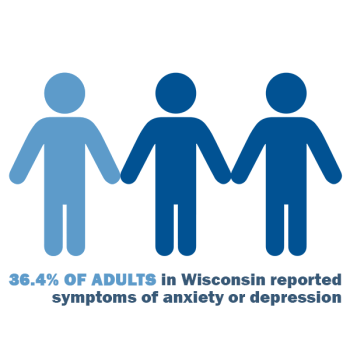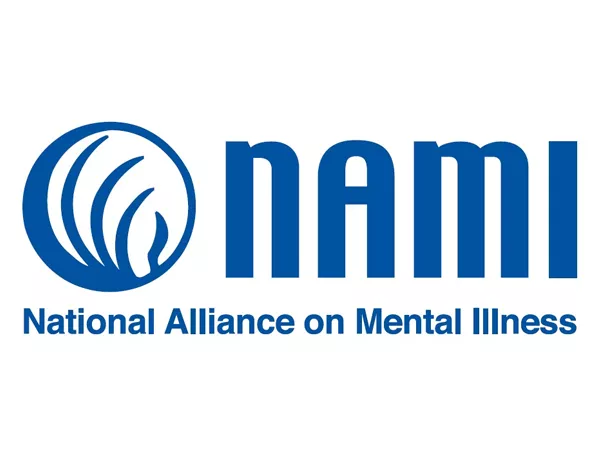Mental health is just as important as physical health when it comes to your overall well-being. It’s important to recognize signs and symptoms that could indicate a problem.
If you are struggling with your mental health, know that you are not alone. One in five adults in the U.S. experience mental illness each year. Just like with your physical health, there are steps you can take to maintain or improve your mental health.
Take a moment and evaluate your current mental state. Where do you fall on the scale below?
|
Thriving |
Managing |
Struggling |
In Crisis | |
| Signs | Positive Calm Sleeping well Eating normally | More easily overwhelmed Mood fluctuations Trouble sleeping or eating | Persistent fear, panic, anxiety, anger, sadness, or hopelessness Avoiding interactions or activities you typically enjoy | Panic attacks Trouble sleeping Thoughts of self-harm or suicide |
| Next Steps | Engage in well-being activities such as meditation, exercise, and gratitude practices | Recognize limits and ask for help Minimize stressors Make time for well-being activities | Talk to someone you trust, like a family member, friend, or coworker Seek help | Seek professional help from your doctor or through an employee assistance program |
We all have a finite amount, or “cup,” of mental energy. Your cup can be drained by many factors such as job issues, relationship problems, financial worries, and personal loss. Even exciting events such as welcoming a new family member or starting a new job can drain your cup. It’s important to find ways to fill your cup.
You may be able to fill your cup with well-being activities such as meditating, eating healthily, meeting with a support group, exercising, spending time on a hobby, and practicing gratitude. But that may not be enough. You may also need to start seeing a counselor or therapist, or reach out to a doctor to see if medication can help.
Remember, mental health, like physical health, is part of your overall well-being. Seeking treatment for your mental health is just as important as taking care of your physical health. Doctors help treat both sides every day. Some people worry about seeking treatment for mental health and may even fear judgement or experience a sense of shame. This is normal. Don’t let negative feelings stop you from seeking treatment. The first step – seeking treatment – is often the hardest, but it gets easier after that.
Seeking Professional Help
Your medical benefits include coverage for mental health care. Most treatment plans for mental health begin by talking to a primary care provider (PCP). A PCP will help you assess your feelings and how they may be impacting your life. Have there been changes in your self-care, personal relationships, work performance, or overall well-being? After talking with your PCP, you may be referred to a mental health professional.
Types of Mental Health Professionals and Treatment
There are several options when it comes to taking care of your mental health. You can choose to meet with a mental health professional in-person or explore virtual appointment options. These visits typically have a copay; the cost per visit depends on the type of appointment and your health plan design. To learn more about covered services and costs review, contact your health plan.
Therapy is the most common treatment method for mental health. You can receive counseling and therapeutic treatment from a variety of mental health professionals. They operate under a variety of job titles – including counselor, clinician, therapist, or psychologist – based on the treatment setting. Working with a counselor or therapist can lead to symptom reduction as well as better ways of thinking, feeling, and living. They do not prescribe medication.
Medication is a treatment option that you may choose after speaking with a doctor or mental health professional. Prescriptions for mental health medication can be provided by a psychiatrist or your PCP. Find covered drugs and in-network pharmacies.
Full-Time Student Coverage
If your dependent is a full-time student attending school outside of your health plan’s service area, certain outpatient mental health services and treatment will be covered out-of-network. For more information, see your Uniform Benefits Certificate of Coverage on Mental Health and Substance Use Disorder Services. Urgent or emergency care is always covered, in or out-of-network.
Students may also have access to low or no-cost medical or mental health services through student services. They should contact their school to learn more.
Well Wisconsin
Employees, retirees, and their spouses who participate in the Group Health Insurance Program have access to the Well Wisconsin program. The program provides a variety of mental health resources such as:
- Certified WebMD health coaches available for confidential, one-to-one conversations and support for various mental health and well-being topics.
- The Daily Habits tool which can help you with issues like coping with the blues, keeping stress in check, creating positive sleeping habits, and balancing work and life issues.
- meQuilibrium, a stress management and resilience building application proven to help members with managing their mental health.
- Togetherall, a safe, secure, and anonymous online peer-support online forum moderated by a licensed mental health professional.
- Short educational podcasts on a variety of mental health and well-being topics.
Learn More about Well Wisconsin.
Employee Assistance Programs
Your employer may offer an Employee Assistance Program (EAP). EAPs offer a variety of resources to improve your wellness. From articles and webinars on a variety of topics, to free and confidential counseling.
Counseling Services through EAPs
The EAP available to you depends on your employer:
- State of Wisconsin: You can have six free visits with a counselor through the Employee Assistance Program.
- Universities of Wisconsin: You can have free visits with a counselor through your EAP Program. Find EAP services for your institution.
- UW Hospital Authority: You can access the EAP through The Pulse.
- City of Madison: You can visit the City of Madison’s EAP webpage.
- All Other Employees: Contact your employer to see if an employee assistance program is offered.
Talk with your supervisor or human resources department if you are looking for additional employer resources or workplace accommodations.
A Note About Privacy
There are many laws and regulations in place to protect patient privacy and confidentiality. Review the State of Wisconsin Group Health Insurance Program privacy practices, and the WebMD privacy policy and video for more information. EAP services are confidential as well. Contact your EAP provider for their privacy policies.












